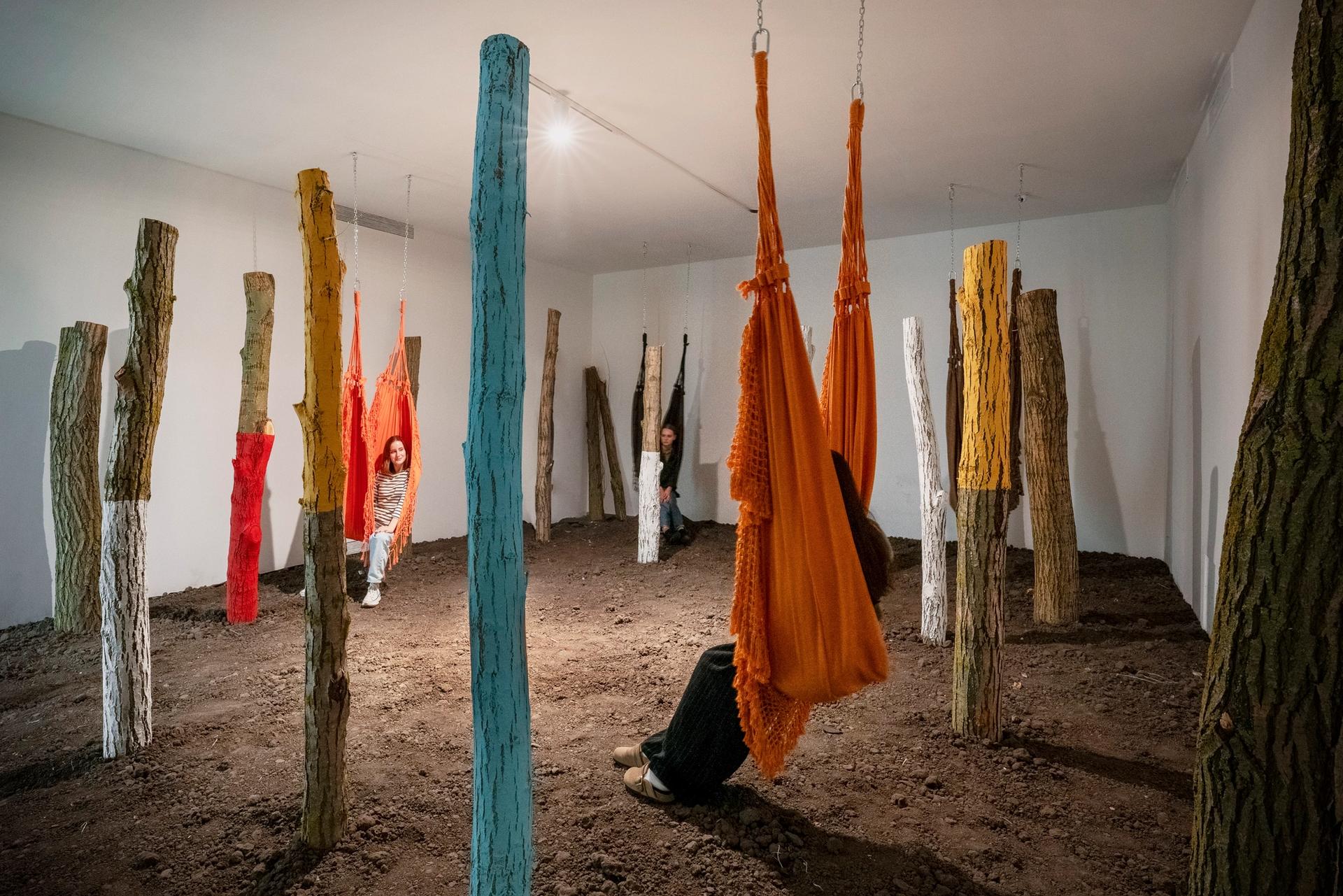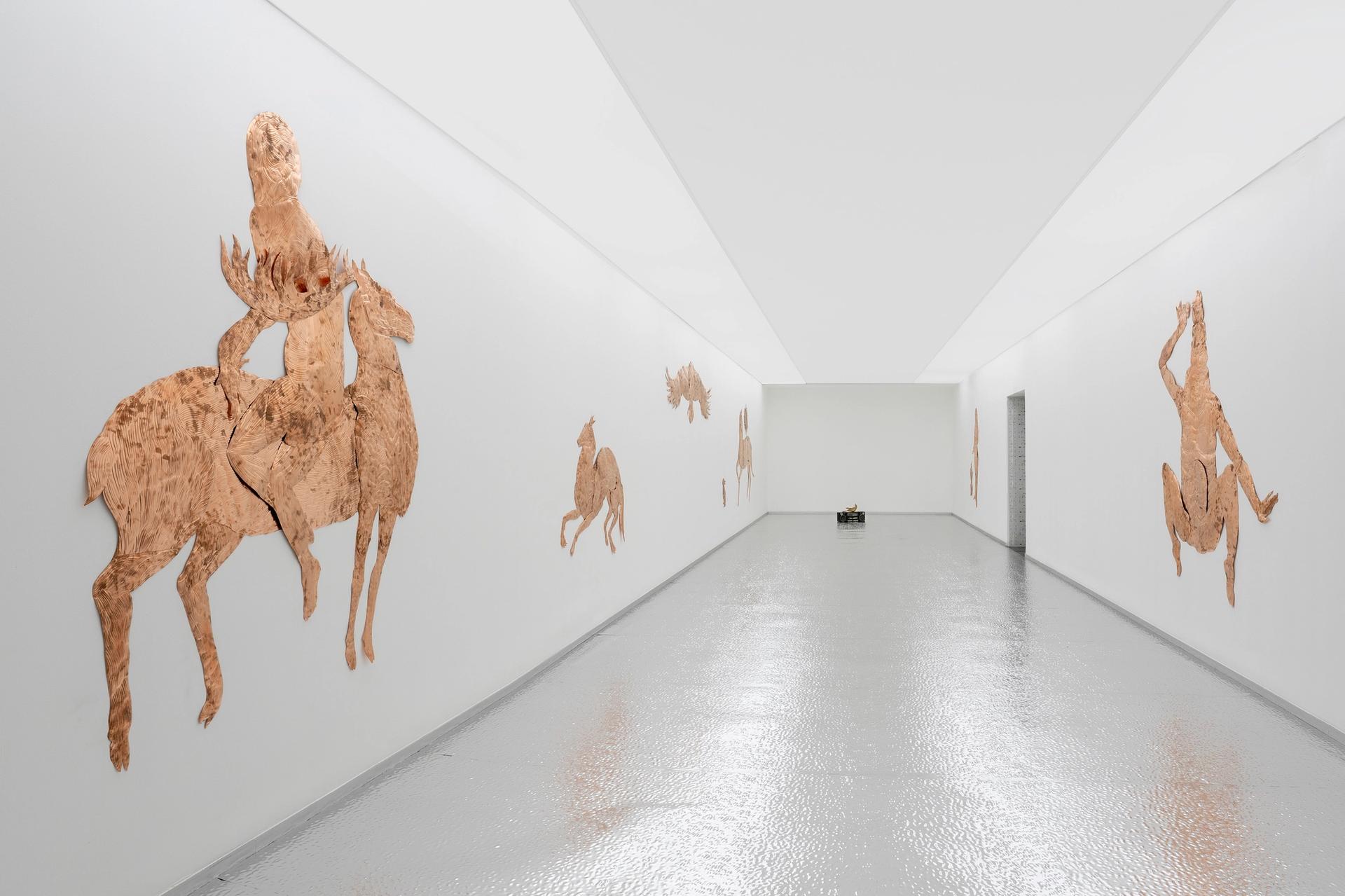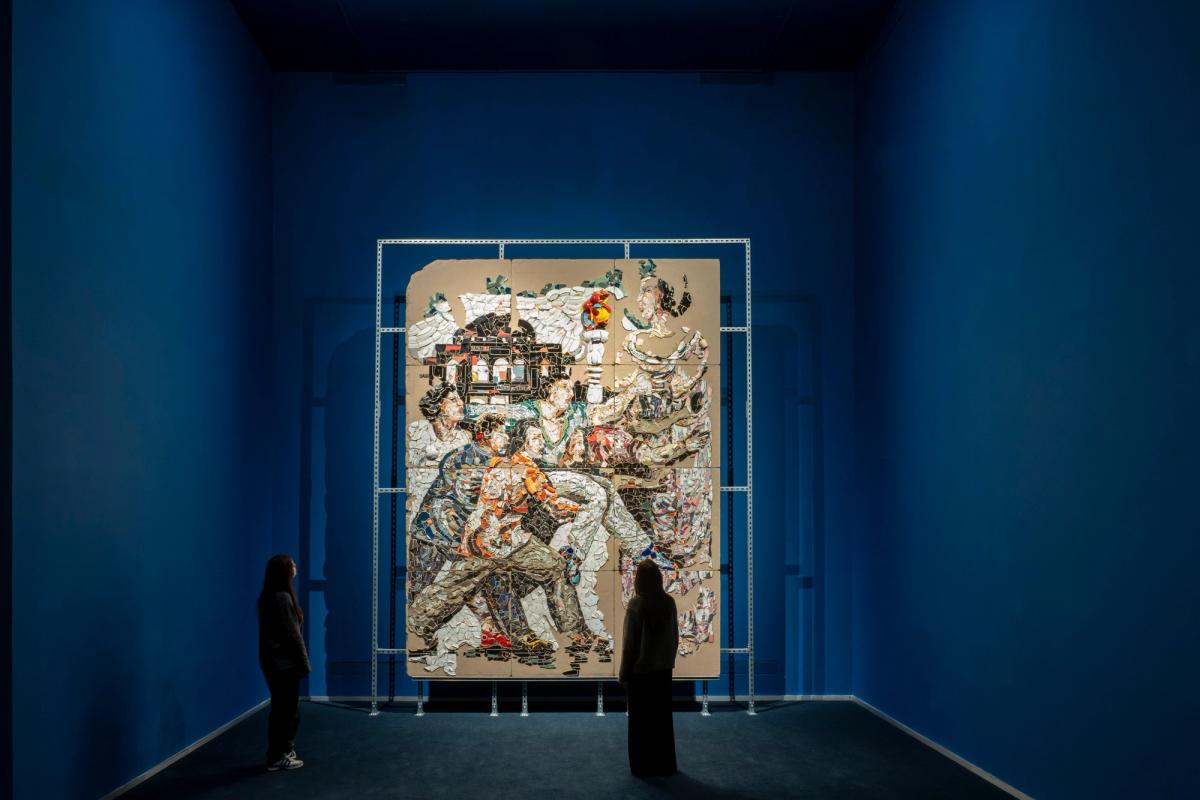An exhibition of works by 21 artists shortlisted for the 7th edition of the PinchukArtCentre’s Future Generation Prize, which was delayed by Russia’s full-scale invasion of Ukraine in February 2022, opened today (4 October) in Kyiv. The prize, open to artists aged 35 and under, sees $100,000 awarded to one overall winner, with an additional $20,000 awarded to up to five of the shortlisted artists.
The exhibition was originally scheduled for October 2023, with the prize ceremony due to take place in December of the same year, but was delayed until August 2024. Russia’s bombardment of Kyiv and Ukrainian energy infrastructure then led to another postponement. The awards ceremony will now be held on 29 October.
While the war has disrupted the prize’s rhythm—it should have been tied to this year's Venice Biennale—it has also turned this edition into both a 15th anniversary celebration, and a testimony to Ukrainian resilience.
The impact of the full-scale invasion
The PinchukArtCentre was closed for several months after the 24 February 2022 invasion. Bjorn Geldhof, the centre’s artistic director, recalls when “Kyiv was threatened by Russian forces that were at less than 20 km from the city”. The centre reopened in June 2022, but not without challenges.
“We basically came to a situation where we didn’t have any electricity for a very long time,” Geldhof told The Art Newspaper ahead of the exhibition’s opening. With internet access still intermittent in Kyiv, Geldhof’s team decided to install a generator to allow staff to work. This “also means that the art centre can become a hotspot for people” to serve the community, the artistic director explains.
Interest in the prize has only grown in recent years, with over 12,000 people applying from 177 countries—up from 5,000 in 2009. There is no pre-selection and all applicants are welcome—with one exception: artists who are citizens of Russia and Belarus, which supported the invasion. “We cannot allow them,” said Geldhof. “I think that would be deeply disrespectful for Ukrainian artists, and deeply disrespectful for all Ukrainians.”

Attitudes of Time – Chapter 4, 2023–ongoing, by shortlisted artist Castiel Vitorino Brasileiro
Photo by Ela Bialkowska, OKNO Studio for PinchukArtCentre/Future Generation Art Prize 2024
Despite this restriction, there is no expectation that the prize winners will be Ukrainian. Geldhof considers the fact that artists from around the world, including “many more localities that live in conflict”, want to participate in the prize to be a form of support for Ukraine.
“It’s not necessarily speaking about Ukraine, but it tells Ukrainians that there are other struggles that Ukrainians can and should relate with,” he said. “I think that’s very important, to keep an openness in mind, even when you’re at war, to realise that there is a broader world out there, that you’re connected with that world, and that your fight is not only your fight, it’s also a fight that others are having, for sometimes other reasons or similar reasons.
"And I think that’s something that makes the prize this year in Ukraine particularly special. This openness that it will give to the society is important. But also the fact that these artists who have really other struggles find it still extremely important to come to Ukraine and speak about it.”
Winners from around the world
This year’s shortlisted artists include Palestinian artist Dina Mimi, who splits her time between Jerusalem and Amsterdam, Sinzo Aanza from Congo, and two Ukrainian artists: Krakow-based Veronika Hapchenko and Dana Kavelina. The latter was winner of the main prize of the 7th edition of the PinchukArtCentre Prize 2022 for Ukrainian artists aged 35 and under, and so was automatically shortlisted for the Future Generation Art Prize.
Hapchenko, who spoke with The Art Newspaper from her studio in Krakow, said she is inspired by the Soviet-era work of Ukrainian mosaic artists Mykhailo Boychuk, Alla Horska, and Ivan Lytovchenko, who expressed Ukrainian national and dissident ideas in state-commissioned works. Horska, whose work was influenced by Greek mythology, was active in the human rights movement and was brutally murdered near Kyiv in 1970.
Hapchenko's work, reflecting her “interest in the mythological legacy of the Soviet engineering projects of the 1930s,” such as redirecting the outflow of Siberian rivers, was shown earlier this year at the Brazilian Mendes Wood DM gallery’s space in New York’s Tribeca. She is showing similar works at the PinchukArtCentre, as she continues her artistic investigation of the impact of Soviet mythology.
“I think in a way it was a very wrong perception of the USSR,” she said. “We didn’t see it as an imperialistic being, with colonies in different states. We perceived it falsely like this connection of nations, and it didn’t exist like that. So, we have to redirect this thinking.”

Woman on a Deer, 2024, by shortlisted artist Bekhbaatar Enkhtur
Photo by Ela Bialkowska, OKNO Studio for PinchukArtCentre/Future Generation Art Prize 2024
Dare to dream
Ukrainian businessman and philanthropist Victor Pinchuk established the PinchukArtCentre Prize, which has a roster of international names on its board including Damien Hirst and Sir Elton John, in 2010. He founded the art centre in 2006.
Speaking at the opening of From Ukraine: Dare to Dream, the PinchukArtCentre’s collateral event at the Venice Biennale 2024, Pinchuk addressed the danger of colonial powers destroying civilizations and spoke of the power of art: “I don’t want to have a situation when great artists are inspired by great Ukrainian tragedies, we need your inspiration now.”
The previous Future Generation Prize, of which $60,000 was a cash prize with the rest set aside to fund the winner’s artistic practice, was awarded in December 2021 to Afghan artist Aziz Hazara, in a pre-war, pandemic-era online ceremony. As a result of the war and the difficulty of travelling to Ukraine—it takes at least 24 hours from Brussels to Kyiv, Geldhof says—this year’s award ceremony will also be a hybrid event.
In addition to Geldhof, this year’s jury members include Italian curator Cecilia Alemani, curator of the Venice Biennale in 2022, and Brazilian feminist curator Diane Lima. Selection committee members included Egyptian curator Mariam Elnozahy, who is now director of Konsthall C in Stockholm, Sweden and Raphael Chikukwa, executive director and chief curator of the National Gallery of Zimbabwe.
The prize is regarded as a jump start for artistic careers. Lynette Yiadom-Boakye was awarded the main prize in 2012. Her acclaimed show of portraits ran at the Tate in 2023-2024. Aziz Hazara’s work was commissioned for the 58th Carnegie International in 2022.


